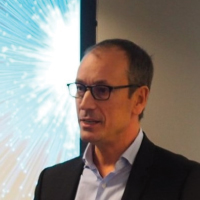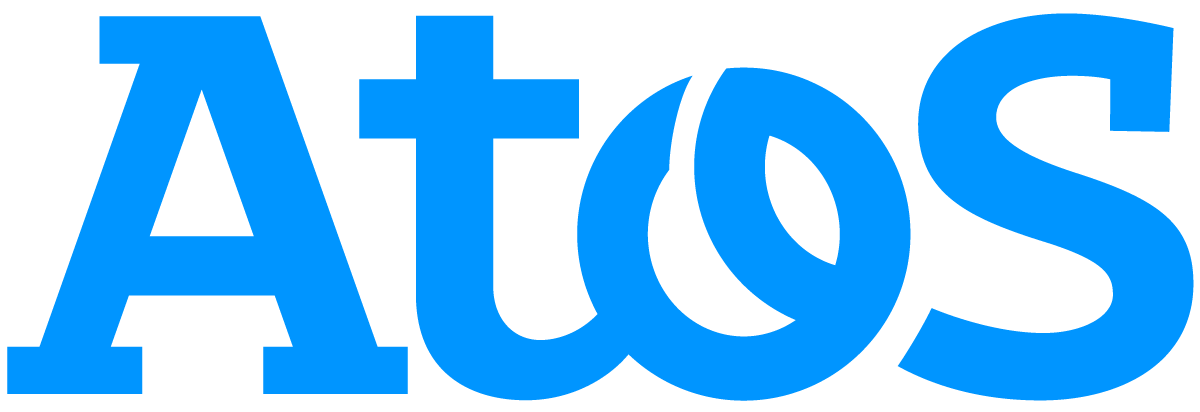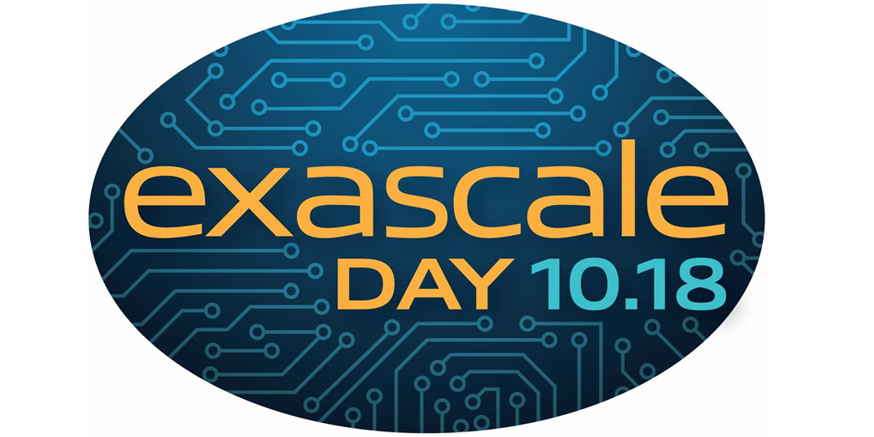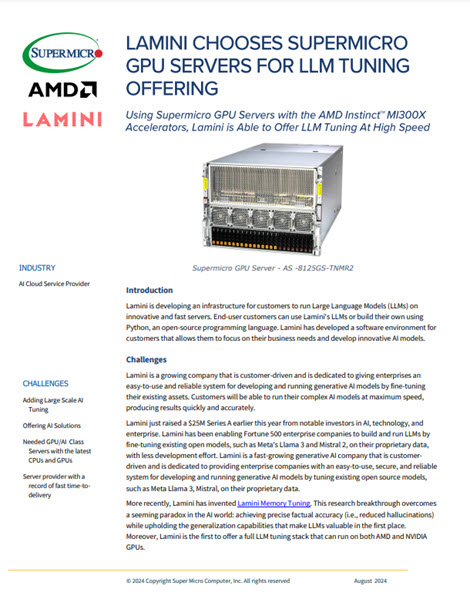 This exclusive Q&A interview was conducted by Nages Sieslack of the ISC 2022 conference organization, with Eric Eppe, head of portfolio and solutions, HPC & Quantum at France-based HPC systems vendor Atos.
This exclusive Q&A interview was conducted by Nages Sieslack of the ISC 2022 conference organization, with Eric Eppe, head of portfolio and solutions, HPC & Quantum at France-based HPC systems vendor Atos.
Nages Sieslack: How are the needs of the European HPC market changing with regard to traditional supercomputing and things like deep learning/AI and data-centric computing?
Eric Eppe: Supercomputers are the soft power for all nationals. They are essential for numerical simulations, accelerating technological, industrial, and scientific innovations. We see a transition from traditional compute-centric simulation toward data-centric, resulting in a more heterogeneous workload. We believe the future of HPC is “hybrid.” This means combining traditional simulation workflows using CPU & GPU (even TPU, FPGA, IPU, why not QPU) with advanced techniques to accelerate part of these workflows thanks to machine learning, artificial intelligence (AI), or even quantum computing (QC). The virtue of deep learning/AI is not only limited to the GPU accelerator on the hardware side but also serves as the foundation of smart software within HPC cluster management and workload optimization. In this regard, deep learning/AI-empowered software optimizes workloads while increasing the systems’ global efficiency.
Sieslack: How are those changes affecting the types of systems and services you are offering?
Eppe: Atos leads the hybrid computing trend with its existing HPC portfolio and the newly revealed BullSequana XH3000. It is the next-generation hybrid computing platform, the foundation for any scale simulation up to the exascale. It has unparalleled flexibility, industry-leading density, and embedded security. For Atos, Exascale doesn’t mean Exaflopic performance only. We believe that Increasing global system and application efficiency is the only way to decrease system cost and stay within a reasonable power consumption at that scale. Thus, we have incorporated ML/AI mechanisms in our HPC Software suites to optimize simulation and keep control of energy consumption for unprecedented efficiency. We have also witnessed the need for high-performance AI simulations and launched the ThinkAI solution last year. With ThinkAI, we eliminate all the roadblocks in designing, developing, and installing high-performance AI systems, putting AI simulations at the fingertips of all businesses and academics. Furthermore, we leverage our HPC-as-a-Service portfolio, enabling any customer to run their simulations anywhere they want.
Sieslack: Geographically, where do see your biggest opportunities for growth in the HPC market, both within Europe and globally?
Eppe: Compared with China, the U.S., and Japan, which are relatively closed HPC economies (they build their own HPCs for their use), Europe is the most dynamic and open HPC market. Europe has significantly invested in the EuroHPC JU, Atos empowers 5 of the 7 EuroHPC centers. Europe continues to invest in supercomputing, including HPC and Quantum computing, e.g.the upcoming Exascale tenders, as an extension of the EuroHPC JU. Atos designs, develops, and builds our HPCs in Angers, France, and is number 1 in HPC in Europe. We also have our HPC, AI & QC R&D centers in France. We actively participate in European initiatives to develop the European microprocessor with EPI and the GAIA-X initiative. Atos is the undisputed leader in the European HPC market, instrumental to its technological and economic sovereignty.
Sieslack: What trends are you seeing for your HPC on-demand service via your Nimbix cloud offering with regards to use cases and the types of customers?

Eric Eppe of Atos
Eppe: As industry analysts have predicted, cloud computing will continue to grow at double-digit rates through 2025*. Our on-demand service through Nimbix is seeing this growth, with customers across the globe consuming computer power at record numbers. We have witnessed on-demand usage increase specifically within automotive manufacturing, Lifesciences, and academic research organizations. We are pleased to offer these industries the most comprehensive hybrid HPC cloud portfolio and are excited to be advancing this space with new offerings and technology. In fact, in the second half of the year, we will deploy the first public cloud offering in partnership with a top hyperscaler to provide Genomic analytics of sequencing data, from specialized cluster resources delivered by Atos Nimbix.
Sieslack: What is Atos doing now on the quantum computing front? Which companies and partners are currently using your Quantum Learning Machine simulator?
Eppe: Quantum Computing will re-invent how we simulate, co-existing with HPC. In Dec 2021, Atos confirmed its role as a global leader in quantum hybridization technologies at its 8th Quantum Advisory Board. For Atos, we work mainly on five strategic directions to accelerate quantum computing:
- a) Quantum programming platform, where we have our flagship Quantum Learning Machine (QLM), which allows the development, optimization, and testing of quantum applications;
- b) Quantum Experts Consulting Services to accompany our clients to discover and exploit quantum use cases in a specific industry or business domain;
- c) New-generation architecture where QC-accelerated HPC platforms are the next milestone we are targeting. We are also building an ecosystem of Quantum machine manufacturers that our customers use to validate QLM models with real Quantum machines.
- d) Quantum algorithm: myQLM enables developers to explore quantum programming, write their own quantum processing methods, and collaborate with other user frameworks.
- e) Quantum safe cryptography: As a leader in digital security, we are preparing cryptographies and HW security modules resistant to QC attacks.
On top of these five strategic paths, we have launched Qscore, a universal metric to benchmark quantum applications’ performance. Together with clients worldwide, such as Argonne Labs, BMW, CESGA, SENAI CIMATEC, and Total, we are accelerating the arrival of the quantum era.
*Source: Intersect360 Research forecasts cloud computing will continue to grow at double-digit rates through 2025.




